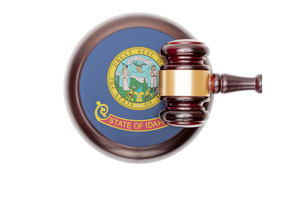An Idaho federal district court has affirmed its role as the gatekeeper of expert witness testimony, by granting in part and denying in part a defendant’s motion to exclude expert witness testimony.
The Incident
Maria Elosu and Robert Brace owned a vacation cabin in McCall, Idaho. The cabin was part of a homeowners’ association called Middlefork Ranch, Incorporated (MFR). The cabin had a wrap-around deck with a propane-fired refrigerator on the north side.
On the day before the incident, Brace stained the deck using an oil-based stain. That night, Elosu smoked cigarettes on the deck. The next morning, Brace and Elosu used rags to clean up the excess oil from the deck. An MFR employee changed the propane on the refrigerator and relit the pilot light.
At 4pm, a fire started in or around the cabin when no one was home. A group of contractors discovered the fire and testified that the fire was isolated to the east side of the cabin when they first arrived. One witness testified that there were no flames around the propane-fired refrigerator. The fire destroyed the cabin and its contents.
The Lawsuit
Brace and Elosu sued MFR for negligently starting the fire. They claimed that the employee knew of the hazard when he lit the refrigerator pilot light on the oil-stained deck. Brace and Elosu hired a fire investigator, Michael Koster, and a mechanical engineer, Richard Mumper, to support their claims. Koster inspected the scene ten months after the fire. Mumper conducted lab tests. Both experts opined that the fire started on the north deck when the pilot light from the refrigerator ignited excess oil vapors.
MFR filed a motion to exclude Koster’s testimony as speculative and not supported by evidence. The court agreed. It found that Koster failed to meet the standards set by Daubert and Federal Rule of Evidence 702 because his conclusion was speculation or contrary to or unsupported by evidence. The court noted that Kosted admitted that there was no concrete physical or testimonial evidence to support his theory that the fire started on the north side of the deck.
MFR also filed a motion to exclude Mumper’s opinion because he is not a certified fire investigator. Brace and Elosu hired Mumper to examine the remnants of the appliances, including the propane refrigerator. Mumper conducted lab tests and examined the evidence. He concluded that there was no mechanical malfunction and opined that the pilot light started the fire.
While Mumper was not a certified fire investigator, the court noted that he worked for a firm that specializes in forensic fire investigations, so he might be qualified to offer opinions about the origins of the fire. However, the court ruled that Mumper could not testify about the origins of the fire in this case because his opinions lacked a proper foundation. Here, Mumper’s role was limited to investigating whether any of the appliances malfunctioned. He did not independently look into any other possible causes.




